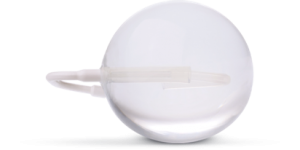A study from the National Center for Biotechnology Information (1) found that drinking more than seven times per week was associated with an increased risk of weight gain and development of overweight and obesity. Excess body weight and risky alcohol consumption are two of the greatest contributors to global disease. Nearly 1 in 4 adults (23%) in the United States of America reported drinking more alcohol to cope with their stress. However, just like anything, doing too much can lead to problems. In this case, we’ll look at why and how alcohol makes you gain weight.
The relationship between Alcohol consumption and weight
The connection between alcohol and weight gain is undeniable, yet its impact varies for each person, influenced by a range of factors. Some of the key determinants that set individuals apart in how they experience this relationship include:
- Gender
- Metabolism
- Drinking habits
- Caloric intake
- Lifestyle
The greater your alcohol consumption, the higher your likelihood of gaining weight. Excessive alcohol consumption is known to increase the Body Mass Index (BMI), which in turn allows for greater alcohol absorption into the body. The National institute of Health found higher BMI, percent body fat, and waist circumference in individuals drinking five or more drinks per day compared to non-drinkers
Moreover, according to a 2023 study published in BMC Public Health (2), individuals who frequently engage in binge-drinking tend to have larger waist circumferences. Binge-drinking involves consuming a large amount of alcohol in a short period, often with the aim of getting drunk. Obesity was reported in slightly more than one-third of those who engaged in binge-drinking one or more times per week. Alcohol does not only make you gain weight but also impacts your weight loss by stopping your body from burning fat.
The relationship between Alcohol consumption and weight
Alcohol can contribute to weight gain for four main reasons:
- Alcohol inhibits your body’s fat-burning process
- It contains a high number of kilojoules
- It leads to greater hunger and less satiety
- It may trigger cravings for salty and greasy foods.
As you age, your muscle mass decreases and your liver weakens, resulting in a higher concentration of alcohol remaining in your bloodstream. Consequently, even if your alcohol consumption remains consistent, you may experience intensified effects due to this physiological change.
A study from the University of Washington (3) found that individuals who initiated binge-drinking at the age of 13 and persisted throughout their adolescent years were nearly four times more likely to be overweight or obese by the age of 24. Similarly, they were almost 3½ times more likely to experience high blood pressure compared to those who seldom or never engaged in heavy drinking during adolescence.
In your early 40s, consuming beer and wine may have minimal impact, but as you approach your late 60s and 70s, alcohol can have a more pronounced effect and pose greater risks.
How to deal with alcohol weight gain ?
Are you finding it hard to lose weight? Your alcohol intake might be a big reason why. It’s surprising how many calories are in drinks like wine or beer. Cutting down on alcohol is the first thing you do. Otherwise, other tips won’t work well. Learning some helpful tips can help you maintain good health and keep away from unhealthy diets. It’s important to follow a logical order to tackle weight gain from alcohol. If not, you might get stuck in a cycle of drinking, gaining weight, losing a bit, and then doing it all over again.
Reducing alcohol consumption
Reducing how much alcohol you drink is crucial for your health journey. To cut back, it’s important to understand what triggers your drinking and establish clear limits. When setting these limits, keep track of your alcohol intake when you’re out to ensure you stay within them. Seeking support from others can also help manage your desire to drink and gain control over it.
Choose low-calorie options
When it comes to choosing low-calorie options while trying to manage your weight, it’s essential to be mindful of your alcohol intake. Here is a list of some popular alcoholic beverages and approximately how many calories they contain:
Traditional margaritas contain up to 35 grams of sugar due to the sweeteners and syrups added. A 4 oz (120 ml)margarita contains 168 calories, which is equivalent to consuming 34 grams of fried bacon.
You might assume this drink is tea-based, but let me clarify: it’s actually composed of gin, rum, triple sec, and vodka. This drink is known to be one of the highest in calories, since it is the equivalent of about 3 shots of pure alcohol. According to the USDA Food Data Central listing (4), for every 8.3 ounces of Long Island you consume, you gain approximately 276 calories. That’s more than 10% of the recommended daily calorie intake.
Typically, when the term “craft beers” is mentioned, there’s a common assumption that they’re healthier options compared to other beers. However, it’s important to note that this assumption is actually misleading, a craft beer can go up to 350 calories per serving. The substantial amount of empty calories in crafted beers make you gain weight because they come from foods that have little to no nutritional value. The weight gain experienced after drinking beer is often temporary.
Rum and Coke are commonly combined by many people due to their simplicity in creating an alcoholic and potent beverage. Both rum and coke contain a significant amount of calories, and when mixed it is a sugar rush. When using regular Coke, this drink contains 185 calories, while with diet Coke it can go down to 100 calories.
Alcoholic beverages with fruit flavors can be tricky as the alcohol may not be readily perceptible, leading to the temptation to consume excessively. Moreover, fruit-flavored juices often contain added sugars, compounding the issue and increasing calorie intake to 300 calories.
Choose wisely which alcohol you drink. Opt for drinks with a low-calorie intake such as white wine, dry martini, or vodka soda. Also, keep an eye on how much you consume. Doctors recommend limiting the number of days when you put alcohol in your body, and, on the days you drink, limit your alcohol intake to a maximum of 1 drink for women, and 2 for men.
Monitor portion size
When crafting your drinks, remember to adhere to specific portion sizes. It’s not just about monitoring the size of your drinks but also the quantity of your food. One of the most significant mistakes to avoid is not eating when drinking, as this can result in overindulging in both food and alcohol.
To ensure you understand the impact of alcohol on your calorie intake, remember that each gram of alcohol contains 7 calories, which can trigger hunger and cause you to eat more. To manage your consumption effectively, pay attention to the portion sizes of both alcohol and food. Here are some specific measurements to keep in mind:
- Beer: 12 ounces (equal to 355 milliliters)
- Wine glass: 5 ounces (equal to 147 milliliters)
- Shot: 1.5 ounces (equal to 44.4 milliliters)
Stay hydrated
Water is crucial when drinking alcohol as dehydration causes overnight weight gain. Remember to alternate between water and alcohol to prevent dehydration. This practice not only helps slow down your drinking but also reduces overall alcohol consumption. Staying hydrated can also alleviate the negative effects of alcohol and contribute to a more enjoyable and responsible drinking experience.
Make healthy food swaps
Studies show that people tend to make poor food choices when drinking alcohol. Therefore, try making some healthy food swaps, here are some examples :
- Instead of potato chips or other fried snacks, opt for roasted chickpeas.
- Replace sugary cocktails with a refreshing mocktail made with sparkling water, fresh fruit, and herbs.
- Choose whole grain crackers or vegetable sticks with hummus instead of processed cheese and crackers.
- Enjoy a piece of dark chocolate (70% cocoa or higher) instead of a candy bar or dessert with high sugar content.
- Swap creamy dips like ranch or sour cream with Greek yogurt-based dips flavored with herbs and spices.
- Satisfy your sweet tooth with fresh fruit or dried fruit without added sugars instead of candy or pastries.
- Instead of white bread or rolls, opt for whole-grain bread or wraps for sandwiches or burgers.
- Try vegetable-based pasta alternatives like zucchini noodles or spaghetti squash instead of traditional pasta.
- Replace high-calorie condiments like mayonnaise with mashed avocado or mustard for sandwiches and wraps.
- Choose lean protein options such as grilled chicken or fish instead of processed meats like sausages or bacon.
Getting Help
If you struggle with controlling your consumption of alcohol, seek help at your local institutions. Numerous healthcare professionals, including psychiatrists, psychologists, social workers, and alcohol counselors, offer assistance and specialized care and can be invaluable allies in your journey toward a healthier lifestyle.
Here are several avenues through which you can seek support:
- Medication Assisted Treatment
- Behavioral treatment
- Lifestyle changes
- Social support
Seeking professional support is crucial to prevent relapse into unhealthy habits and ensure long-term success in managing weight and health. For those encountering challenges in weight loss, the Spatz 3 Gastric Balloon offers a viable solution, providing effective support and guidance on the path to achieving sustainable weight loss goals to avoid gaining weight after losing it. While the gastric balloon is among the safest weight loss solutions, the relationship between alcohol and the gastric balloon is delicate.
Sources:
(1)https://www.ncbi.nlm.nih.gov/pmc/articles/PMC4338356/#:~:text=Similarly%2C%20Coulson%20et%20al.,day%20compared%20to%20non%2Ddrinkers.
(2)https://bmcpublichealth.biomedcentral.com/articles/10.1186/s12889-023-16946-
(3)https://www.washington.edu/news/2004/07/07/study-links-obesity-other-health-problems-to-adolescent-binge-drinking/
(4)https://fdc.nal.usda.gov/fdc-app.html#/
(5)https://alcoholtreatment.niaaa.nih.gov/


